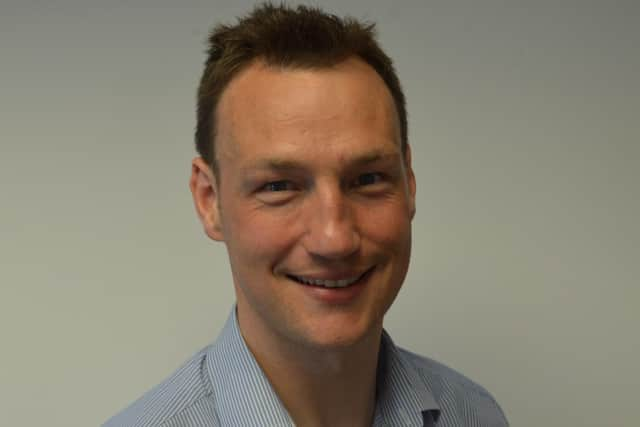Palliative care actions will speak louder than words - Richard Meade


This was the sentiment expressed by politicians and audience members at a recent virtual hustings event by Marie Curie and Children’s Hospices Across Scotland (CHAS) exploring dying, death and bereavement. MSP representatives from the five largest parties in the current Scottish Parliament attended; including Lewis Macdonald MSP, Scottish Labour, Donald Cameron MSP, Scottish Conservatives, Alex Cole-Hamilton MSP, Scottish Liberal Democrats, Fulton Macgregor MSP, SNP and Alison Johnstone MSP, Scottish Greens.
Marie Curie research has shown that more people will be living with and dying of a terminal illness over the next 20 years, many of them with multiple health conditions and in community settings. These projected changes will lead to a significant increase in demand on community-based services with more people needing a palliative approach.
Advertisement
Hide AdAdvertisement
Hide AdAn audience of nearly a hundred health and social practitioners, third sector representatives, academics, and family members who have experienced dying, death and bereavement asked politicians what the parties would do, if elected to government, to meet emerging challenges.
By and large a strong consensus emerged around a number of points of action including a new national strategy for palliative and end of life care, with Fulton MacGregor promising to “fully support a new national plan.” This was echoed by Alison Johnstone who agreed with the need for the “development of a new national plan for palliative care”.
The importance of funding for third sector palliative care providers was also recognised by the MSPs with Lewis Macdonald calling for “proper funding of hospices”. This was echoed by Donald Cameron who said, “palliative care services in the community should be placed on a sustainable footing”.
Much of the care of terminally ill people is delivered in social care settings, including care homes, which have experienced a tragically high number of deaths during the pandemic. The importance of the Scottish Government’s Independent Review of Adult Social Care was discussed, and all panellists agreed on the need to commit further to the social care workforce who are key to delivering palliative and end of life care but often do so without training.
Increased support for family carers was also seen as a priority, particularly following bereavement. The need to identify carers for support was highlighted by Alex Cole-Hamilton saying many “carers don’t know they are carers, particularly young carers, who are looking after family members in end of life situations”.
Panellists expressed their support for extending Carers Allowance payments for carers following a bereavement from eight weeks to six months.
It was encouraging to see strong political support for dying, death and bereavement, and commitments made are important. But this must lead to action early in the next Parliament and in the first Programme for Government. Only by doing this can we ensure that everyone affected by dying, death and bereavement has the best possible end of life experience, which reflects what’s most important to them.
Richard Meade, Head of Policy and Public Affairs, Scotland, Marie Curie
Comments
Want to join the conversation? Please or to comment on this article.